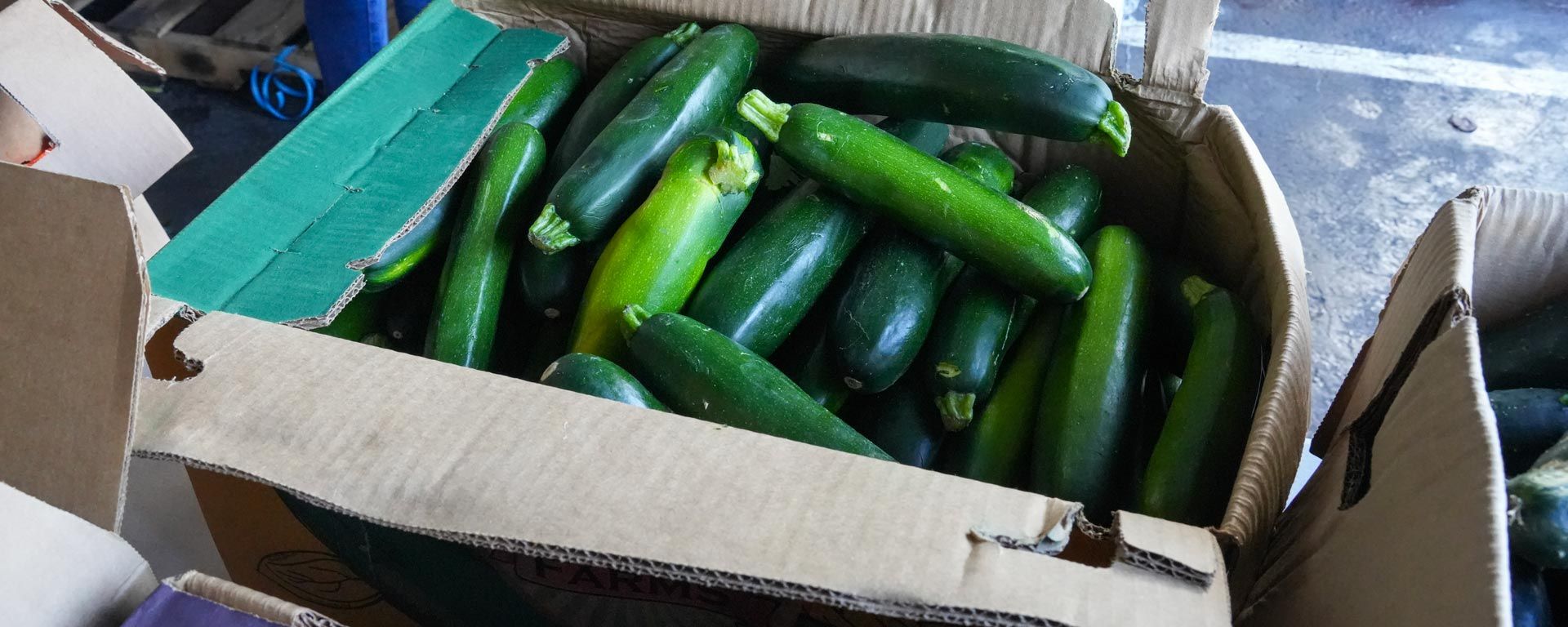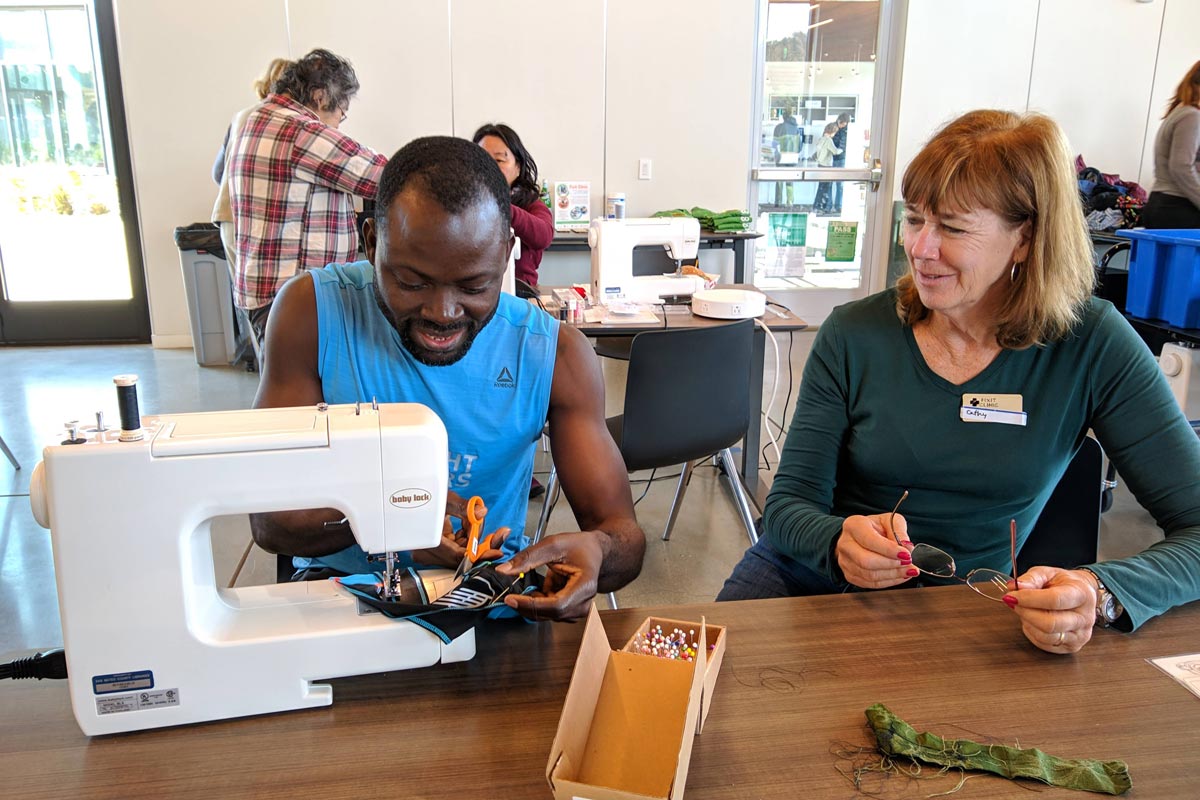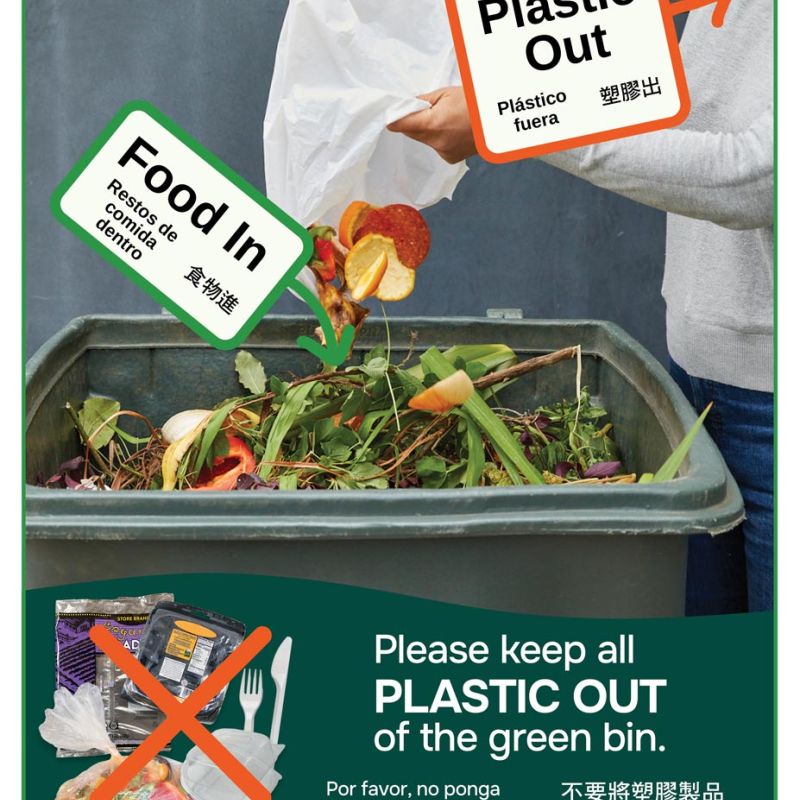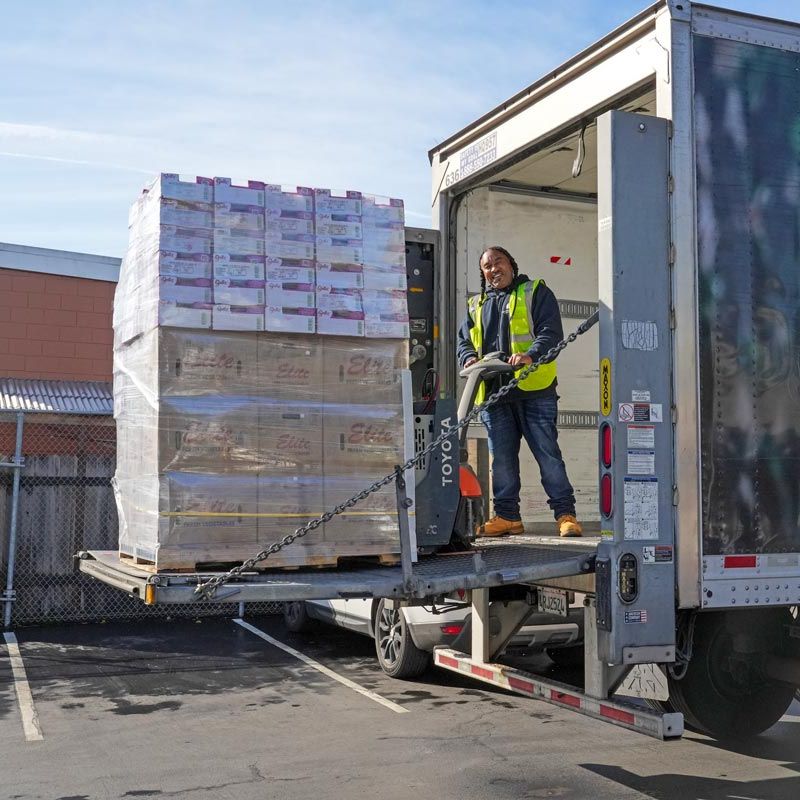
Requirements for Commercial Edible Food Generators
Edible food recovery is the act of diverting surplus edible food from businesses, organizations, or events that otherwise would have been disposed of in a landfill or sent to compost and instead providing it to community members in need. This recovery service is carried out by food recovery organizations, such as food banks and other community-based organizations with a deep understanding of food insecurity in our communities and programs to distribute food throughout our communities.
Frequently Asked Questions
Below are answers to common questions about edible food recovery requirements. If you have additional questions, email ediblefoodrecovery@smcgov.org.
Ordinance No. 04857 “Establishing an Edible Food Recovery Program” is the County of San Mateo’s mechanism for enforcing the SB 1383 edible food recovery requirements locally. Individual jurisdictions within the county each maintain their own edible food recovery ordinance, however the County’s Sustainability Department oversees compliance with the requirements and conducts all inspections.
Regulated businesses and organizations (see information on which businesses and organizations must comply below) must do the following to comply with their SB 1383 edible food recovery requirements.
- Recover the maximum amount of surplus edible food: Save the maximum amount of your surplus edible food that would otherwise be disposed (e.g. in landfill or compost), so it can be used to feed people in need. Intentionally spoiling surplus food so that it cannot be recovered is prohibited.
- Contract with a food recovery organization or service: Establish a contract or written agreement with a food recovery organization(s) that picks up or receives edible food for distribution to neighbors in need.
- Track and keep record of pounds per month donated: Maintain records of type, frequency, and pounds of food recovered each month by each of your food recovery organization partners.
The contract between a business and a food recovery organization must include the following:
- The name, address, and contact information for your food recovery organization partner.
- A list of the types of food that is collected by or self-hauled to a food recovery organization.
- A Summary of the established frequency that food will be collected by or self-hauled to your food recovery organization partner.
The food donation records must include a record of the quantity (in pounds per month) and type of food collected by or self-hauled to each food recovery organization you hold a contract with. Your business can use any temple or database for this that you choose, or may work with your food recovery organization partners to track amounts of food recovered from your operation.
Your business must also, upon request, provide the County of San Mateo Sustainability Department information about your edible food recovery efforts and cooperate with County staff as they conduct in-person inspections of your business and its edible food recovery operations.
Failure to meet these requirements will result in fines.
SB 1383 identifies two tiers of businesses that SB 1383 applies to: Tier 1 and Tier 2.
TIER 1:
| Generator Type | Generator Definition |
|---|---|
|
Supermarket |
A full-line, self-service retail store with gross annual sales of two million dollars ($2,000,000), or more, and which sells a line of dry grocery, canned goods, or nonfood items and some perishable items. |
|
Grocery Stores 10,000+ sq ft total facility size |
A store primarily engaged in the retail sale of canned food; dry goods; fresh fruits and vegetables; fresh meats, fish, and poultry; and any area that is not separately owned within the store where the food is prepared and served, including a bakery, deli, and meat and seafood departments. |
|
Food Service Providers |
An entity primarily engaged in providing food services to institutional, governmental, commercial, or industrial locations of others based on contractual arrangements with these types of organizations. This does not include catering companies that only provide food services on an order-by-order basis to clients without holding any long-term contracts. |
|
Food Distributors |
A company that distributes food to entities including, but not limited to, supermarkets and grocery stores. |
|
Wholesale Food Vendors |
A business or establishment engaged in the merchant wholesale distribution of food, where food (including fruits and vegetables) is received, shipped, stored, prepared for distribution to a retailer, warehouse, distributor, or other destination. |
TIER 2:
| Generator Type | Generator Definition |
|---|---|
|
Restaurants |
An establishment primarily engaged in the retail sale of food and drinks for on-premises or immediate consumption with 250 or more seats, or a total facility size equal to or greater than 5,000 square feet. |
|
Hotels |
Any hotel, motel, bed and breakfast inn, or other similar transient lodging establishment with 200 or more rooms and an on-site food facility. |
|
Health Facilities |
A facility, place, or building that is organized, maintained, and operated for the diagnosis, care, prevention, and treatment of human illness, physical or mental, including convalescence and rehabilitation with 100 or more rooms and an on-site food facility. |
|
Local Education Agencies |
A school district, charter school, or county office of education with an on-site food facility. |
|
Large Venues |
A permanent venue facility that annually seats or serves an average of more than 2,000 individuals within the grounds of the facility per day of operation of the venue facility. |
|
Large Events |
An event that charges an admission price, or is operated by a local agency, and serves an average of more than 2,000 individuals per day of operation of the event. |
A map of food recovery organizations operating in San Mateo County can be found below and here. *Please note that the County of San Mateo does not endorse any specific food recovery organization or service. The County provides this list of operating food recovery groups and services as a reference only.
All regulated businesses and organizations are required to hold a contract or written agreement with a food recovery organization that sets the terms of their food recovery partnership. Even if you only require food recovery services occasionally, you must still hold a contract. If your business or organization does not generate surplus food, you must still have a plan in place to have surplus food recovered if a circumstance arises that leaves your business with surplus (incorrect shipment of product, product mislabeling, refrigeration failure, power outage, etc.). Please review our list of Food Recovery Organizations and Services to find an organization you may partner with if surplus ever does become available.
Setting up a contract with a food recovery organization, even if it is for on-call or as-needed services, will ensure that you have a food recovery plan in place if and when you find yourself with surplus food that is mandated to be recovered. No regulated business or organization is exempt from food recovery inspections.
Ensure that all staff are aware of safe food recovery processes and procedures. Many food recovery organizations offer trainings on foods they accept and the conditions (packaging, temperature, etc.) they need the surplus food to be in.
Commercial edible food generators must ensure that all surplus food is recovered safely for future human consumption, which includes meeting all food safety handling requirements and regulations. Please refer to the Safe Surplus Food Donation Toolkit for guidance, or call the San Mateo County Environmental Health Department at (650) 372-6200 with specific food safety handling questions.
The County’s Environmental Health Services Department offers a program to help businesses and organizations comply with the SB 1383 edible food recovery requirements, including support with setting up food recovery contracts and educating staff on safe food donation handling, with free hands-on technical assistance. Learn more by visiting Environmental Health Edible Food Recovery Program Assistance.
The County of San Mateo Sustainability Department conducts inspections of regulated businesses to assess their compliance with the SB 1383 edible food recovery requirements. Regulated businesses and organizations are required to cooperate with the County, allowing County staff access to your facility, food recovery records, and waste bins. The Sustainability Department will schedule inspections in advance whenever possible so that the appropriate person from your operation is available to share the necessary information with our team, however inspectors reserve the right to show up for inspections without advance notice.
During inspections, inspectors will look for evidence that:
- Your business has systems in place to recover the maximum amount of edible food that would otherwise be disposed via landfill, compost, or animal feed.
- Your business does not intentionally spoil surplus edible food.
- Your business has a contract (must be available onsite) with a food recovery organization or service for collection or acceptance of edible food for food recovery (the contract needs to be signed by appropriate parties and currently valid).
- Your business maintains a list of each food recovery service or organization that collects or receives your edible food, including name, address and contact information.
- Your business has records of the quantity of food (measured in pounds) recovered per month, collected or self-hauled to a food recovery service or organization for food recovery.
SB 1383 defines “edible food” as any raw, cooked, or processed edible substance, ice, beverage, an ingredient used or intended for use or for sale in whole or in part for human consumption and chewing gum.
This definition is consistent with the State of California Retail Food Code.
There are both Federal and State legal protections against civil and criminal liability for food generating businesses and organizations that have their surplus edible food recovered by a non-profit organization. These protections exist if surplus food is provided in good faith, using standard food handling procedures, even if the recovered food later causes harm to an end recipient.
More information on liability protections can be found here.
Food recovered from a permitted food facility is considered a donation when given to a non-profit organization in good faith, using standard food handling procedures, and when the non-profit then distributes this recovered food to needy individuals free of charge. Food recovery done in this manner is legally protected from criminal and civil liability even if a recovered food product later causes harm to the end recipient.
Lawsuits arising out of the donation or provision of recovered food are extremely uncommon, and there have not been any known cases of litigation that involved food donation following the rules above.
The primary legal protections for food donation include:
- United States Code, Bill Emerson Good Samaritan Food
- Donation Act (Title 42, Chapter 13A, Section 1791 (c))
- California Good Samaritan Food Donation Act (AB 1219)
- California Health and Safety Code (Section 114433)
- California Civil Code (Section 1714.25 (a))
- California Food and Agriculture Code (Section 58505)



